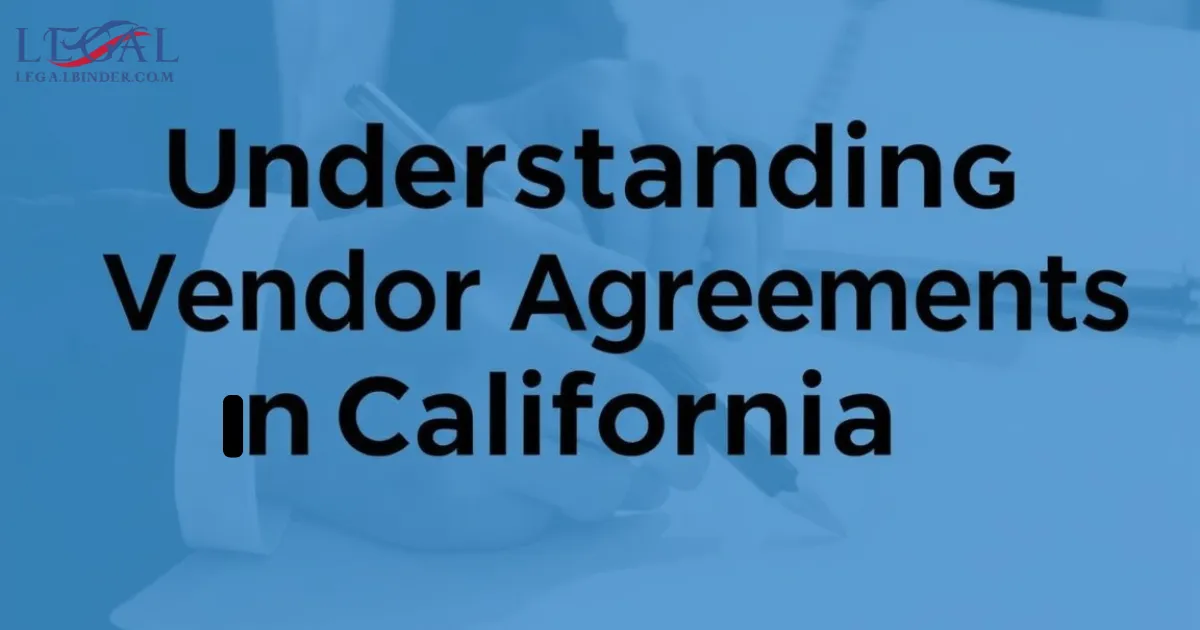Physical Address
304 North Cardinal St.
Dorchester Center, MA 02124
Physical Address
304 North Cardinal St.
Dorchester Center, MA 02124

When you enter a vendor agreement in California, you’re not just signing a piece of paper — you’re shaping the future of your business. Whether you’re a startup sourcing products, a restaurant negotiating supply deals, or a service provider managing collaborations, these agreements define your security, your rights, and your peace of mind. Many business owners overlook the small print, only to realize later that a missed clause cost them thousands of dollars. This article is designed to help you avoid that regret and instead create contracts that support your success.

By the end, you’ll have a clear understanding of the essential components of a California vendor agreement, the laws that govern them, and practical tips to negotiate confidently. For additional resources, you can always explore our homepage and state-specific guides.
California is one of the most dynamic business hubs in the United States. From Silicon Valley tech firms to local small businesses, partnerships are the backbone of growth. A vendor agreement California is the roadmap that ensures both sides know their obligations, timelines, and remedies if things go wrong.
Think about the last time you made a deal based purely on trust. Maybe it was with a supplier who promised timely delivery or a contractor who guaranteed results. If that trust was broken, you probably felt the stress, financial loss, and disappointment. A strong vendor agreement shields you from that pain — it transforms uncertainty into stability.
Every vendor agreement should contain a few foundational clauses. Without them, you’re leaving yourself vulnerable:
California has specific commercial codes (UCC rules) that apply to business transactions. You can learn more from the California Department of General Services.
Contracts in California are governed by both state and federal laws. Important points include:

For official contract laws, see the California Attorney General website.
To reduce risk, your vendor agreement should include clauses that protect your business from disputes and unexpected events.
California courts recognize force majeure, but the clause must be written clearly. You can explore details at California Courts.
Negotiation is where many businesses either protect themselves or set themselves up for trouble. Here are strategies:
Even with the best agreements, disputes can arise. California offers several resolution options:
Official dispute guidance is available at California Self-Help Courts.
Many businesses fall into traps when drafting agreements. Watch out for these mistakes:
By avoiding these mistakes, you reduce financial risk and build stronger vendor relationships.
It must include an offer, acceptance, mutual consideration, and lawful purpose, and involve competent parties.
Yes, especially for goods over $500, per California’s Uniform Commercial Code.
If breached, you may seek mediation, arbitration, or litigation through California courts.
Failing to include detailed clauses that protect their rights and ensure compliance with California law.
A well-drafted vendor agreement California is the cornerstone of safe, reliable, and successful business partnerships. By mastering key clauses, knowing your legal protections, and negotiating wisely, you set yourself up for lasting stability. Never let vague contracts or blind trust dictate your future — instead, build agreements that give you confidence.

To keep growing your legal knowledge and protect your business, visit our homepage and access more state-specific contract guides. Take control today, and make your next vendor agreement a strong and successful one.